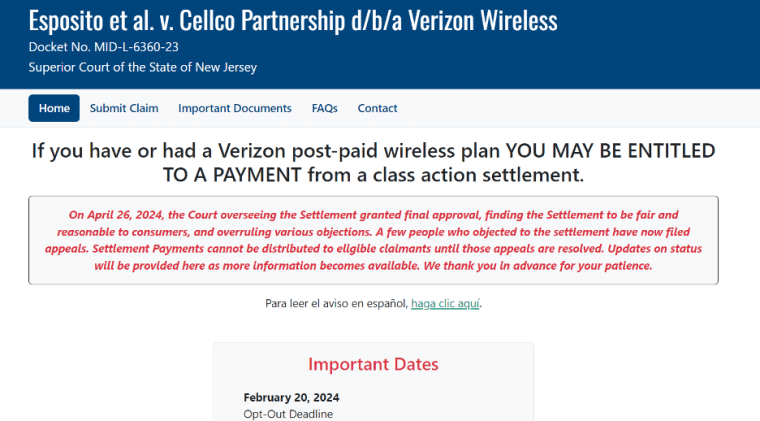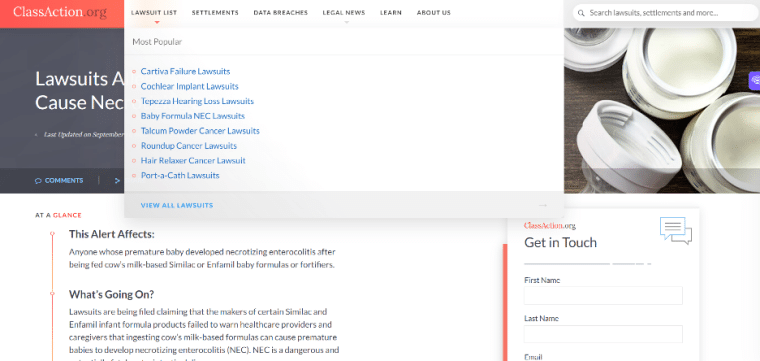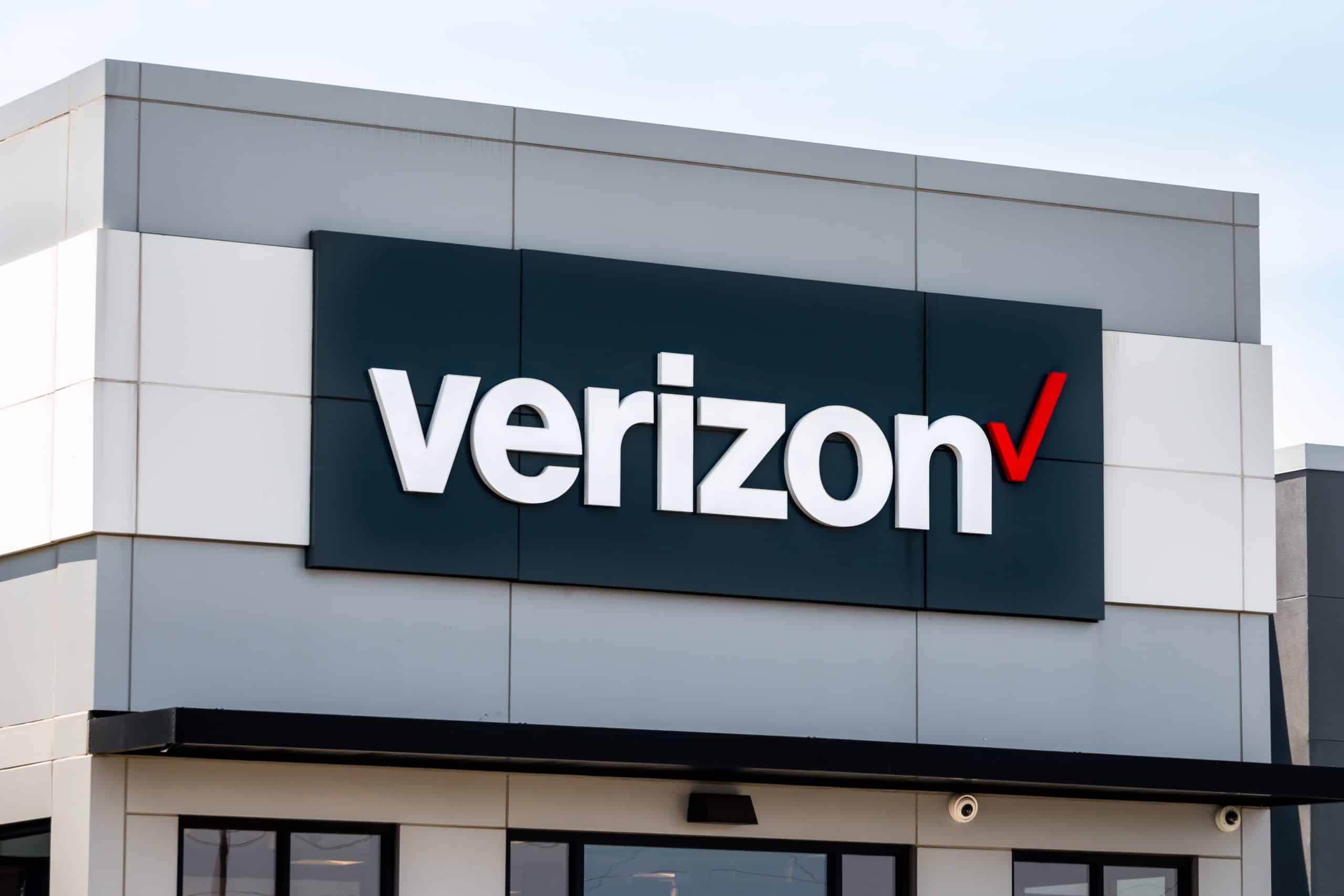Tech giant Verizon Wireless is no stranger to legal challenges and controversy. The company recently experienced a data breach involving over half of its employees. This data breach resulted in a class action lawsuit against Verizon for cybersecurity issues. Around the same time, the company settled a separate class action case in which it was accused of charging consumers fees without informing them.
In recent years, class action lawsuits have become a popular way for consumers to obtain justice against large companies without having to spend hundreds of thousands of dollars for their own legal team. Discover how and why consumers are doing this with Verizon Wireless and how this and other class action lawsuits are leading to positive changes within the company and beyond.
The Latest Verizon Data Breach Class Action Lawsuit
In late September 2023, Verizon experienced an internal data breach that exposed sensitive information related to 63,206 employees. The wireless carrier claims it was an insider threat in which another employee violated policy by obtaining a file containing the following information:
- Names
- Addresses
- Social Security numbers
- Union affiliation
- Dates of birth
- Compensation
Verizon filed a report in Maine on February 7, 2024, and immediately began offering two years of identity protection and credit monitoring services to affected employees. Those with questions were encouraged to contact human resources.
Despite Verizon’s efforts to handle the issue internally, California plaintiff Carlson Malacon filed a lawsuit in early 2024. The Verizon class action lawsuit claims the breach was discovered in December 2023, nearly three months after it happened, but employees were not notified until two months later. It also alleges the breach was preventable and a result of Verizon’s failure to address cybersecurity vulnerabilities.
Details about possible settlement amounts, class members’ eligibility, and the process and deadlines for filing a claim have not yet been released. The law firm that has taken on the case will likely offer this information to affected individuals as the case progresses.
The Wireless Consumer Admin Charge Controversy
Employees aren’t the only people affiliated with Verizon who have been affected by the company’s actions lately. In 2023, a number of Verizon customers filed a class action lawsuit accusing Verizon of charging and increasing an administrative fee to customers with postpaid wireless accounts.
The plaintiffs also claim that these misleading fees were not disclosed in any plan’s advertised monthly price, making the charges “deceptive and unfair.” Verizon never denied that it levies the charge. However, the company did claim that it has always disclosed the charge.
The company has stated that it charges this administrative fee to recoup regulatory compliance and network-related costs. Still, a $100 million Verizon settlement was offered by the company to cover all affected customers who received Verizon wireless service and paid the administrative fee between January 1, 2016, and November 8, 2023.
Class members had until February 20, 2024, to opt out of the lawsuit. The hearing to determine the fairness of the settlement offer was held on March 22, 2024, followed by a claim deadline of April 15, 2024. A special lawsuit information website allows Verizon customers to apply for a claim using the unique ID and confirmation code provided.
On April 26, 2024, the court granted final approval of the latest Verizon class action lawsuit settlement. However, because objections have been filed, plaintiffs have not yet received their proposed payouts.
If objections are cleared without any further action to be taken, class members are eligible to receive a payout of up to $100, depending on how long they had a Verizon account and how much they were charged in administrative fees during that time.

Understanding the Class Action Settlement Process
To kick off a class action lawsuit, one or more plaintiffs file a claim in court on behalf of a group of people who have been similarly affected by a company’s actions. In order to obtain class certification, the case must meet specific criteria:
- The class must be so large that it would not be practical for everyone to become a party in the case
- Eligible customers involved must have similar claims and share common questions of law or fact
- The individuals filing the claim must be a typical representative of the entire class
- The class representatives and their legal team must have the means and skills to represent the class
Once a legal team is able to get the lawsuit certified as a class action, only customers or potential class members are notified and given instructions for participation. The legal team then negotiates a settlement on each member’s behalf or litigates the case at trial. Either way, a lawyer has to prove impropriety on the company’s behalf based on documented agreements between the company and its customers.
During the process, the court appoints a settlement administrator, a neutral third party who validates claims and ensures the fair distribution of settlement funds. Having the court select an individual rather than one of the involved parties ensures that there is no bias.
Impact on Verizon Customers and the Company
The impact of class action lawsuits doesn’t end once a settlement is reached and distributed. It can have long-term effects for many years to come. For example, it can alter how consumers understand a company’s reputation, causing distrust. As a result, the company may lose out on business as current and potential customers consider shopping with competitors.
For this reason (along with the potential for massive settlements), class action lawsuits often cause companies to pivot their actions and policies. In the case of the Verizon administrative charge controversy, the company admitted no wrongdoing but agreed to change its customer agreement to be clearer about the charges so customers could make more informed decisions.
Consumer Rights and Class Action Participation
It is critical for consumers to stay vigilant about potential class action lawsuits. First, consumers need to know when they are affected by a company’s wrongdoing, especially if their sensitive information has been used without their consent or exposed to potential bad actors. Consumers also need to know what companies are up to and which ones they can trust. Finally, joining some class action lawsuits can be pretty lucrative, so it’s often worth checking to see if you’re eligible for any cases.
Fortunately, there are several online resources that can help consumers stay up to date on the latest open class action lawsuits. ClassAction.org and Consumer-action.org are two sites that compile such information into a list as well as deliver updates via their email newsletter.
These sites get their information from news outlets and legal sources as well as from self-reporting eligible customers alerting each other to potential suits. This is an easy way for consumers to know what lawsuits may be coming down the pipeline and how they can join in.

Other Open Class Action Lawsuits to Consider
Although the deadlines for filing claims in the Verizon wireless lawsuits have passed, there are still many active lawsuits that affected consumers can participate in.
TaxAct Data Sharing Settlement
US-based tax preparation software company TaxAct is currently facing a class action lawsuit claiming that it exposed taxpayers’ sensitive information, such as names, email addresses, and income details, to third-party websites (including Google and Meta/Facebook) without their consent. While TaxAct has refused to admit any wrongdoing, it has still agreed to a hefty settlement of $14.95 million.
Eligible class members would have used TaxAct online software to file a Form 1040 between January 1, 2018, and December 31, 2022. The company is offering cash payments and free use of TaxAct Xpert Assist to allow affected consumers to file their 2024 tax returns.
The final day to claim is September 11, 2024. Eligible consumers can join the claim by visiting taxactclasssettlement.com. The deadline to opt out of the settlement is the same. The website states that the company expects the average class member to receive roughly $18.65, with joint filers and California residents possibly receiving slightly more. If you want to claim your slice of compensation, it’s important to fill out the form in a timely manner.
Crocs Shrinkage Lawsuit
Popular footwear company Crocs has recently been sued by a group of consumers who are claiming that the company’s shoes shrink several shoe sizes over time, making them unwearable for those who originally purchased their correct size. The plaintiffs in this case allege that Crocs knew about this shrinkage and failed to disclose it. This failure to disclose ultimately violates the California Consumers Legal Remedies Act.
Crocs asked the court to dismiss the lawsuit earlier in 2024, but a judge recently denied that motion. It’s too soon to tell whether Crocs will settle or take the case to trial or what the outcome of its actions will be for affected consumers. However, those who have made a sales transaction with Crocs and have experienced shoe shrinkage issues should monitor the development of this lawsuit to see how it unfolds and whether they are eligible for compensation. If you’re interested in learning more, check out our full breakdown of the Crocs class action lawsuit.
The Broader Impact of Class Action Lawsuits
Though many news outlets that report on class action lawsuits focus on what companies lose and what consumers gain, it is important to note that these legal proceedings can be beneficial for both parties. For companies, class action lawsuits give business leaders a chance to examine their policies and understand what changes need to be made to better protect and serve customers.
For consumers, these lawsuits provide an opportunity to receive restitution for any personal or financial issues resulting from a company’s wrongdoing. Additionally, class action lawsuit outcomes sometimes drive legal changes that positively impact all consumers.
One example of legislation that is spurred by class action lawsuits is the joint effort by President Joe Biden and the Federal Trade Commission to stop companies from charging “hidden or misleading fees.” The administration believes that companies must be more transparent about these so-called “junk fees” and start disclosing the full prices upfront for their goods and services.
This action underscores the importance of consumer participation in class action lawsuits. Often, the consequences of these lawsuits bring positive change to a much broader portion of the population than just the affected consumers. Class action lawsuits are about holding companies accountable and promoting consideration and protection for all consumers.
Accountability Is Key for Both Consumers and Businesses
Both the Verizon data breach lawsuit and the controversy surrounding administrative fees highlight the need for vigilance, transparency, and accountability in the business space. When these values are implemented, consumers can more easily build trust with companies and enjoy greater peace of mind. Additionally, when they prioritize accountability, companies maintain the motivation to do the right thing.
Above all, consumers need to avoid relying on any one company to protect them. Staying informed about and participating in class action lawsuits is a necessary part of holding companies accountable and ensuring they consider everyone’s best interests.
As more consumers stay alert and join class action lawsuits, companies will be more likely to search for ways to care for their customers without compromising their ability to successfully conduct their business.

